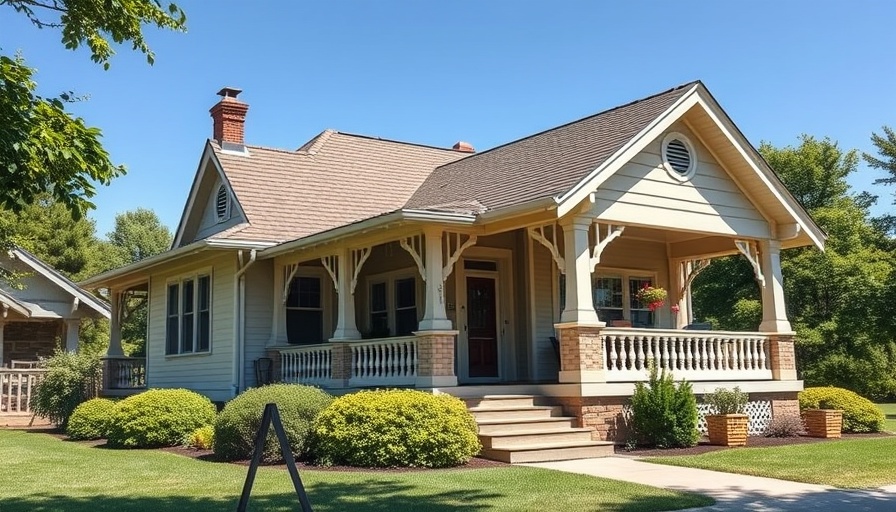
Preserving the Legacy of Classic Homes
In an era dominated by modern architecture and rapid urban development, the preservation and renewal of classic homes offer vital connections to our history and shared cultural identities. These structures variously reflect the artistry, craftsmanship, and values of the eras in which they were built. For homeowners, it’s essential to honor this legacy while ensuring that their homes reflect contemporary needs and sustainability requirements.
Why It Matters: The Value of Classic Features
Classic homes often possess unique design elements, such as intricate moldings, handcrafted details, and quality materials—features that are hard to replicate today. By preserving these characteristics, homeowners not only maintain the aesthetic appeal of their properties but also contribute to local character and charm. Moreover, historical homes often have higher resale values in today’s market, making preservation a wise financial decision.
Future Trends in Home Renovation
As the demand for sustainable practices continues to grow, the integration of modern technologies and eco-friendly materials in the preservation of classic homes is gaining momentum. Homeowners are now opting for energy-efficient updates that do not compromise the original charm of their homes. Whether it’s through installing high-performance windows that resemble the original glass or utilizing insulation that enhances energy efficiency without impacting aesthetics, the future of home renovations seems to embrace an marrying of old and new.
Practical Tips for Homeowners
When embarking on a preservation project, consider the following tips: 1. **Research:** Understand the historical significance of your home. Familiarize yourself with the original architectural style and materials used. 2. **Local Resources:** Use local resources, such as historical societies or preservation boards, for guidance and support. They can provide invaluable information on best practices and potential funding sources. 3. **Hire Experts:** Consider hiring contractors or architects specializing in restoration work. Their knowledge ensures that renovations are done correctly, respecting both your home’s past and its future.
Emotional Connection: The Heartfelt Value of Home
Owning a classic home often goes beyond mere residency; it’s about the emotional ties that bind families to their pasts. Stories of childhood memories woven into the fabric of a home enrich the lives of its inhabitants. Renovations, when done thoughtfully, can breathe new life into a home while allowing those memories to flourish. Therefore, homeowners are encouraged to engage in this journey as a way to create spaces that resonate with their histories and aspirations.
Investing in Your Community through Home Preservation
Preserving classic homes also serves a broader purpose. These structures contribute to the vibrancy of neighborhoods, enhancing community pride. As you restore and care for a historic property, you are not only uplifted but also your entire community benefits from the aesthetic and cultural enhancement that follows. By investing in your home and its upkeep, you support the heritage and enjoyment of the area for future generations.
Getting Started: Steps for a Successful Renewal
Getting started on the path to preservation can be daunting. Here are practical steps to break it down: 1. **Assessment:** Evaluate the current condition of your home and create a detailed list of necessary repairs within your budget. 2. **Plan:** Develop a clear plan that outlines chronological steps and anticipated costs for each project phase. 3. **Documentation:** Keep records of renovations and restorations to maintain a history of your home's journey, which may increase future salability.
As the intersection of past and present continues to reshape our surroundings, preserving classic homes represents not only a journey into our architectural heritage but also an opportunity for sustainable living that embraces renewal. This dual commitment to history and modern needs paves the way for homes that are as functional as they are beautiful. So as you consider home projects, remember that renewal does not mean losing the essence of what makes your house a home.
For further insights and advice on how to preserve and renew your classic home, visit our resource center and take the first step toward enriching your living space today!
 Add Row
Add Row  Add
Add 




Write A Comment